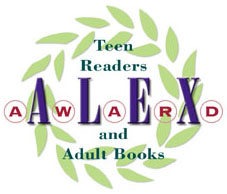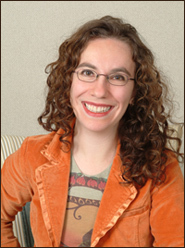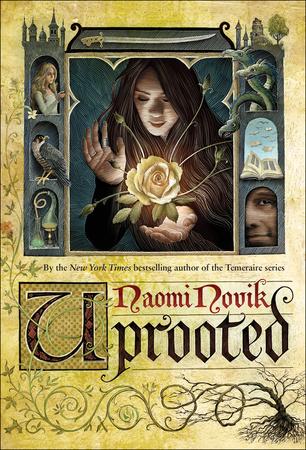The Alex Awards, which “are given to 10 books written for adults that have special appeal to young adults, ages 12 through 18,” are a source of particular interest to me. The underlying concept of the award embodies the kind of thinking booksellers do all the time in assessing the possibility of  multiple handselling audiences for a book. The how, where, and why books crossover from Young Adult to Adult (such as The Night Circus) and vice versa are both interesting and useful. The benefits of literary bridges are immense. Successful crossover books provide substantive momentum at critical points in a reader’s life. They promote multi-generational connections. Apart from any other considerations, Alex Award winners also tend to be some of our biggest sellers.
multiple handselling audiences for a book. The how, where, and why books crossover from Young Adult to Adult (such as The Night Circus) and vice versa are both interesting and useful. The benefits of literary bridges are immense. Successful crossover books provide substantive momentum at critical points in a reader’s life. They promote multi-generational connections. Apart from any other considerations, Alex Award winners also tend to be some of our biggest sellers.
Another point to consider is that Alex Award titles have been vetted by a team of professional readers for their appropriateness as a crossover book. Booksellers think about crossover potentiality on our own all the time, of course, and are well aware that making assumptions that an adult book is a good crossover based on a small sampling of secondhand information is a dangerous gambit indeed. Alex Award titles afford the luxury of a sure thing. Still, it’s only 10 books and, however much a bookseller might yearn for Fromm’s Escape from Freedom, duty calls for us to engage with crossover possibilities on our own all the time.
I consider the perfect Alex Award title to be a book loaded with YA interest, but with several elements to it that are characteristically adult. I don’t mean just simple stuff like strong sexual content or ultra violence, but also narrative elements such as density of exposition and description, magisterial pacing, or other style elements that are richer and require more patience in their execution than YA titles serve up.
The ideal book has some adult elements but also offers strong immediacy of young adult themes and relatable characters and scenarios. Dispassion is a deal breaker. Thus the simple presence of young adult-aged protagonists is no good indicator of YA interest. If a character is settled in herself then being young does not confer any sort of magic. A true dynamism of perspective is everything. One needs a coming of age, a shifting emotional matrix that changes the angles at which characters relate to each other over time. There must be a journey, a passage marked by immediacy of experience, impressions, and strong emotion.
 For all these reasons I believe that Naomi Novik’s new fantasy novel, Uprooted, embodies the principal of the Alex Award. It is absolutely loaded with YA appeal. The story follows Agnieszka, a rural girl who has the misfortune of being 17 in the year the Dragon, the Wizard who protects them against the very real danger of the wood, will choose a 17-year-old girl from his territory to live alone with him in his tower for 10 years. I know you are probably thinking Beauty and the Beast, but the Dragon is exactly as he seems, a handsome 150-year-old man. Before the Dragon chooses his new servant, the prior female occupant of the tower is released. Unseen for 10 years by the locals, she returns a changed person who demonstrates unnatural refinement and no interest whatever in remaining in her original provincial village.
For all these reasons I believe that Naomi Novik’s new fantasy novel, Uprooted, embodies the principal of the Alex Award. It is absolutely loaded with YA appeal. The story follows Agnieszka, a rural girl who has the misfortune of being 17 in the year the Dragon, the Wizard who protects them against the very real danger of the wood, will choose a 17-year-old girl from his territory to live alone with him in his tower for 10 years. I know you are probably thinking Beauty and the Beast, but the Dragon is exactly as he seems, a handsome 150-year-old man. Before the Dragon chooses his new servant, the prior female occupant of the tower is released. Unseen for 10 years by the locals, she returns a changed person who demonstrates unnatural refinement and no interest whatever in remaining in her original provincial village.
Before the Dragon chooses his new servant, the prior female occupant of the tower is released. Unseen for 10 years by the locals, she returns a changed person who demonstrates unnatural refinement and no interest whatever in remaining in her original provincial village. Over the last century each young woman released from the Dragon’s service had reported that the seemingly ageless, handsome wizard did not romantically engage with her, but no one believes them.
It is not hard to see that this backdrop is filled with YA interest. This element of unknown experiential and sensual tension is born out many times over in Agnieszka’s journey of discovery. It turns out that she has great intuitive skill in magic, thus moving from being a servant to an apprentice, and ultimately to the lover of the Dragon. Her style of magic is not one of clean lines and precise execution of formula, but intuition and suggestion, and of executing magic within its flow. Agnieszka’s story is marked by a clear feminism founded on the transcendent strength of an innate, strongly rooted gnosis, which Agnieszka has in spades, Self-sufficiency is a necessary ability, and any concept of dependency or yearning is eschewed, Yet it is more of a default position, a core strength which blooms when a true partnership is on offer. Self sufficiency on both sides of a relationship between a wizard and a witch makes magic and romance gestalt. For example the most potent magic is that of revealing what is, of summoning truth, which requires two interlaced magicians working in tandem.
 The Dragon, Sarkan, is a good guy, if more than a little irascible, but when it comes to emotions he is a clod compared to Agnieszka. There’s plenty of action and excitement along the way, not to mention a very well realized and creepy evil with a cool backstory.
The Dragon, Sarkan, is a good guy, if more than a little irascible, but when it comes to emotions he is a clod compared to Agnieszka. There’s plenty of action and excitement along the way, not to mention a very well realized and creepy evil with a cool backstory.
All this begs the question, is the book adult? The answer is yes. The primary reason involves the highly developed, conceptually dense exploration of the meaning and working of magic. The exposition of the book contains rich layers of detail that require sustained focus and patience in a reader. There are two frank sex scenes that might push the envelope for some people, but they are very well handled and the romantic arc of the story is exceptionally well done in general.
Personally, I wish the men in the books weren’t uniformly depicted as clueless failures in the self-knowledge department, ranging from vain and calculating to dangerously assertive, all the way up to the only likable man in the story: the talented but emotionally hamstrung Dragon. The book is strongly original, and intellectually satisfying throughout, though my Tolkienometer did go off during the storming of the Dragon’s Tower, a not so subtle mash-up of the Battle of the Hornburg and the Siege of Gondor. Yet, the author’s bio notes her growing up on Tolkien, so it’s all good.
The long and short of it is that Uprooted should not only win an Alex Award; it is the epitome of it. A combination of elements, of youth and age, really is gestalt when handled well. Consider the description of King Theoden as he lay in state after falling in battle. “His face was young and fair, save that a peace lay on it beyond the reach of youth.”

Kenny, I will definitely be looking for this book (when my galley pile sends me a little break)